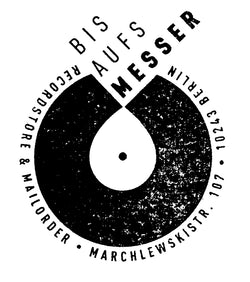Fast forward to 2017. We had signed a release by Sharhabeel Ahmed in order to finish the project (Yes, this one is still coming...soon.) I planned my first trip to Sudan. Two Austrian friends of mine had just returned from Khartoum and had met Ali Dokka at one of the few remaining live music venues of the city Baba Costa. Ali performs at this Cafe once a week to this day together with his band the Blue Stars. At some point in the 1970s though he used to be the guitar player for The Scorpions. Sure enough I went to see one of his gigs and he was more than surprised to hear questions concerning this particular band from his musical history but which he had nearly forgotten about. He told us to get in touch with Amir Sax. Amir is one of the bands founding members and was The Scorpions band leader from the early 1970s until they parted ways sometime in the 1980s. Unfortunately Amir was not be found or reached during the last couple days of my stay and again a little time passed before I could gather new knowledge about them.
I went back to Sudan in December of the same year. In the meantime my local colleagues Larissa and Yassir had managed to reach Amir and he was happy to meet. We got together with him in a Cafe right at the Nile in Omdurman, the city right on the other side of the river from Khartoum. It was a happy occasion for everyone. He told us stories about him meeting Jimmy Cliff and Lewis Armstrong when they visited Sudan and how he and his band mates from The Scorpions played extensively in Kuwait, both in club residencies as well as for television. Amir brought tons of incredible photos illustrating not only the bands history but the vivid cultural live in the many music clubs in Khartoum of the 1970s. During this decade up until 1983 the capital was home to a huge number of clubs and concert halls. This scene started to perish after Nimeiry's turn towards the implementation of Sharia law in 1983. During the first decade of his rule he had actively supported various artists of the Jazz scene and was even taking artist like Kamal Keila along with him to trips throughout Africa. The 1989 coup of Bashir and his generals then caused the final blow to a once thriving scene. Both of these political events within 6 years lead to significant drawbacks for the Sudanese jazz scene resulting into hardly no gig opportunities left and parties and concerts being critically observed by the regime. A number of musicians faced prosecution, most of the time for their political views; some left Sudan for good. Music never completely vanished from public life and even the regime kept selected artists close but for a majority of those bands affiliated to the jazz scene life and making ends became a lot harder.
The Scorpions dissolved as a group around the same time. After the end of the band's activity Amir continued to be a full-time musician playing at various occasions. Seif Abu Bakr, the bands singer stayed in Kuwait after the recordings of the album and started pursuing a career outside the music industry although he kept on playing to this day with other bands in Kuwait in his spare time.
I'm writing these introductory words in early August 2018. It is a Sunday and tomorrow The Scorpions will have one of their first rehearsals again. Seif Abu Bakr returned to his home country Sudan from Kuwait few weeks ago and the plan to re-release the music had been an igniting spark as well. Either way, it seems the narration of The Scorpions has not reached its end yet, let us hope this will only be another starting point within the bands long career. A starting point from which onwards they will receive a little more of the attention they have had deserved right from the beginning; both by a new generation of Sudanese as well as by the rest of the world.
Jannis Stuertz
Khartoum, 5th of August 2018.

